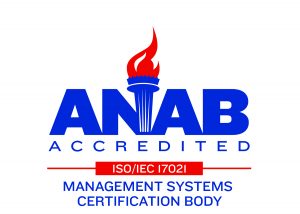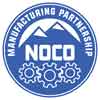Running an effective operation is optimal, and it promotes in-house training and upskilling opportunities.
“In my opinion, being an effective leader requires being an effective listener,” iconic UCLA men’s basketball coach John Wooden once said. “The most productive leaders are usually those who are consistently willing to listen and learn.”
Put this in perspective: Moneypenny recently discovered that a mind-boggling 93 percent of Americans aren’t chasing their dream jobs. The global health crisis made many people reevaluate all aspects of their lives, especially at the professional level. To support this claim, according to the U.S. Department of Labor Statistics, 3.9 million Americans resigned from their positions in June alone.
Why are People Quitting Their Jobs?
At the peak of the pandemic, when 43 states implemented stay-at-home orders, some people endured prolonged periods without work. This gap provided them a chance to reassess their career paths and contemplate options.

“Most people don’t evaluate their job satisfaction every one of 365 days in a year,” said Brooks Holtom, a professor of management and senior associate dean at Georgetown University. “Those shocks usually happen idiosyncratically for people. But with the pandemic, it’s happened en masse.”
Gallup identified three reasons why people are resigning in droves: They don’t see advancement opportunities, aren’t aligned with a company’s mission, and don’t enjoy strong relationships at work.
An Opportunity for the Manufacturing Industry
Because hordes of employees have vacated their roles, there were more than 10.9 million job openings at the end of July. An associate professor of management at Texas A&M University, Anthony Klotz, coined this phenomenon “The Great Resignation.” Quite predictably, The Great Resignation is happening at a time when the economy has recovered and is more robust than it was pre-COVID-19. Furthermore, economists forecast that the recovery will continue through the year’s end and into 2022.
Despite such rampant economic expansion, many sectors, including the manufacturing industry, are facing staffing calamities. So, the question becomes: How can manufacturing executives acquire and retain elite professionals in this ever-changing era? Greg Sullivan founded Colorado Springs, Colorado-based FlowTLS, which advises businesses on rapid system flow solutions to increase profits and capacity. Somewhat surprisingly, Sullivan says one way that manufacturing executives can develop a strong workforce is by overseeing an effective operation rather than an efficient one.
The Differences Between Effective and Efficient
In manufacturing, effectiveness is measured by the ability to produce the desired result. Conversely, efficiency puts more attention on the lack of waste in producing that result. Sullivan, who aims to help business owners improve their sales, productivity, company cultures, and employee relations, expounded on the differences between effectiveness and efficiency in the manufacturing sector.
“Efficiency is basically reducing resources or reducing waste,” Sullivan said. “Effectiveness is accomplishing the mission and the objectives of the system. The objective of a manufacturing system is to be profitable, and deliver what the customer wants. Of course, efficiency and effectiveness will interact together. So, the difference is that one is looking internally at reducing waste. The other one, meanwhile, is looking externally at the customer.”
Sullivan further detailed how trying to be efficient by keeping factory machines constantly running can be counterproductive. He also explained why having a full workforce, instead of hiring temporary employees to meet labor needs, is an effective approach that can ultimately prove beneficial.
“Project managers tend to try to be efficient and keep the resources working all the time,” Sullivan said. “The whole concept is headed the wrong way. It’s headed towards an internal efficiency, internal elimination of waste. Manufacturers should think of a football team with 11 starters on offense and 11 starters on defense. Technically, that’s all you need to play, but you need reserves to be effective and put yourself in the best position to win. You have to prepare for changes, and that’s why you don’t try to create an efficient football team. The bench isn’t a waste because it’s supporting your ability to effectively deliver results by deadlines, both on a football team and in a manufacturing plant.”

How Being Effective Can Enhance Employee Retention
Among other positives, being efficient can help minimize waste and strengthen a company’s bottom line. Nevertheless, Sullivan contends that being effective is dramatically more advantageous because it’s a customer-centric approach that can prioritize a company’s workload.
“Effectiveness relates to doing the right things, finishing jobs, and achieving goals,” Sullivan said. “Efficiency is about optimally doing things, like doing it the fastest or in the least pricey way. Before you try to be more efficient, first try to be more effective by identifying the most important tasks and doing them first. I say this because being efficient doesn’t automatically lead to a jump in productivity because you could be doing the wrong tasks and manufacturing the wrong things, or making too many things.”
Moreover, being effective can provide business owners with the necessary time to train and upskill their personnel. Nowadays, as The Great Resignation remains underway and without a conclusion in sight, offering internal training opportunities is critical. As previously noted, many people have quit their roles because they don’t want to be stuck in a dead-end job. Fortunately, for those seeking advancement opportunities, the vast majority of C-level manufacturing executives are willing to educate novices and prepare them to grow within the industry.
“I always ask my clients, ‘Why don’t you have time for training?’ They typically respond that they are busy making stuff, and maybe there’s a problem there,” said Sullivan, who added that the average U.S. manufacturing worker is aged 40 and up. “Business owners should make the time for their employees to be trained, cross-trained, and improved. They should take potential leaders to the shop floor and prepare them to train for that position. After all, in a year or two, the current leader may retire. Do you have a replacement for this person? When you’re efficient and creating things just because you have the machinery to create them, you’re wasting invaluable time, and that’s going to come back to haunt you. I urge clients to start preparing their employees for the future today.”
Recent High School Graduates and Women
At many high schools across America, guidance counselors tell students that earning a college degree is the lone gateway to success. This way of thinking is not only antiquated but also limits the options for recent graduates. Although starting wages in manufacturing are $15.55 per hour, which is double the minimum federal wage of $7.25 per hour, the sector is expected to have 2.1 million unfilled jobs by 2030. To exacerbate matters, the U.S. Census Bureau reports that nearly 25 percent of the manufacturing workforce is age 55 or older. Consequently, there is an urgent need to start introducing young people to careers in manufacturing at the high school level.

Similar to recent high school graduates, many women are deterred from mulling jobs in manufacturing because it’s considered taboo. With women comprising only around 30 percent of the total workforce, they remain underrepresented in the manufacturing industry. The reality is manufacturing jobs are reliable, pay well, and the industry needs young adults and women for the betterment of America.
Work for Metalcraft
Despite the economic upswing, the manufacturing sector has lost approximately 578,000 jobs over the past 18 months. A survey conducted by the National Association of Manufacturers (NAM) found that the ongoing challenges most manufacturers face in attracting, retaining, and upskilling their workforce are likely to persist without a concerted, industry-wide effort. Fortunately for people facing uncertain professional futures, the manufacturing sector is enjoying unprecedented growth and, to keep up, we have several part- and full-time openings that could be ideal for you. Plus, Metalcraft prides itself on being an effective company that offers good salaries, benefits, and limitless advancement opportunities.
Contact Metalcraft
As a third-generation, family-owned company, we’ve been providing Coloradans with fulfilling jobs for more than 30 years. Although certainly not in John Wooden’s class, I’m confident that I’m “an effective leader” and one who wants to see my coworkers learn, develop, and thrive. We strictly abide by our core values because they help ensure that we are a tight-knit team with an unwavering dedication to brilliant manufacturing. Join us today and let’s experience this exciting time together.









